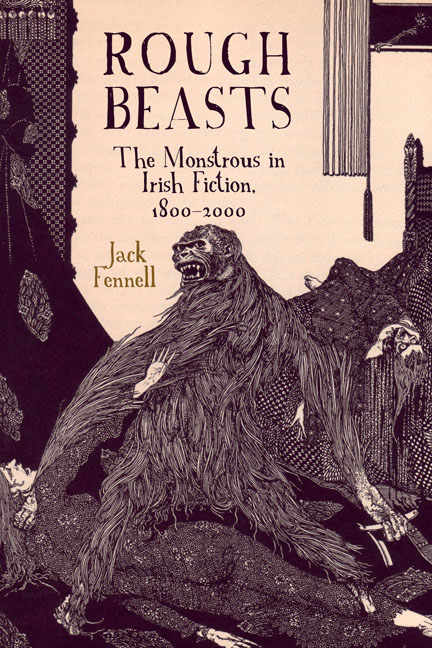Book contents
- Frontmatter
- Contents
- Acknowledgements
- 1 Introduction: In Defence of Fear
- 2 We Dare Not Go A-Hunting: Fairies, Deep Time, and the Irish Weird
- 3 Harbingers of Hunger: Famine, Cannibalism, and Hunger-Demons
- 4 From Lore to Law: Malevolent Magic and Spiritual Warfare
- 5 Ghosts, Narrative, and Noumenal Reality
- 6 Just Sign Here: Faustian Pacts, Demons, and Chaos
- 7 The Undead Generations: Zombies, Vampires, and the Corporeal Undead
- 8 Breeding Breaks Out: Shape-Shifters, Cryptids, and Cunning Animals
- 9 Haunted Spaces and Monstrous Lairs
- 10 Conclusions
- Bibliography
- Index
2 - We Dare Not Go A-Hunting: Fairies, Deep Time, and the Irish Weird
- Frontmatter
- Contents
- Acknowledgements
- 1 Introduction: In Defence of Fear
- 2 We Dare Not Go A-Hunting: Fairies, Deep Time, and the Irish Weird
- 3 Harbingers of Hunger: Famine, Cannibalism, and Hunger-Demons
- 4 From Lore to Law: Malevolent Magic and Spiritual Warfare
- 5 Ghosts, Narrative, and Noumenal Reality
- 6 Just Sign Here: Faustian Pacts, Demons, and Chaos
- 7 The Undead Generations: Zombies, Vampires, and the Corporeal Undead
- 8 Breeding Breaks Out: Shape-Shifters, Cryptids, and Cunning Animals
- 9 Haunted Spaces and Monstrous Lairs
- 10 Conclusions
- Bibliography
- Index
Summary
Various historians and cultural theorists concur that over the centuries following the Glorious Revolution, Ireland came to be seen as a liminal space where the past lingered on and distinctions between the natural and supernatural were blurred, a perception I summarised in Irish Science Fiction as one of a ‘Gothic lost world’ (38–9). Magic, science, and religion were co-existent in the Irish imagination, often with little distinction being made between them, and during the nineteenth century these worldviews had to be somehow incorporated into newly bureaucratic systems of law, economics, and politics. The popular culture of the time was marked by an ambivalent attitude to the past, with paeans to scientific progress on the one hand and Romantic mourning for the past on the other. In Ireland this convergence of Romanticism, modernity, and Enlightenment science was further inflected by the fall from grace of the filí, once-aristocratic bards who were then obliged to sell their works to a public they despised following the demise of the Gaelic nobility that had once given them patronage. The works they produced tended to be morbid and death-focused, full of the ghosts of a once-proud past (33–4). One effect of this bardic legacy, combined with the tropes and concerns of the Ascendancy Gothic, was that “Ireland's mad scientists were often more explicitly wizardly than their English brethren” (34). Here, I want to argue that this admixture of science, magic, religion, and bureaucracy, combined with the cross-fertilisation of Gothic literature with Irish supernatural lore, created the necessary conditions for the potential emergence of an Irish variation of ‘Weird’ fiction.
Weird fiction (also known as “the Weird”) is a specific subgenre, mostly horrific in its emotional affect, that foregrounds the vulnerability of human beings in a universe that is indifferent at best and hostile at worst. The monsters we encounter therein are all biological – mutants, hybrids, extra-terrestrial predators, and living gods – and in cases where they seem insubstantial or ghostly this is only because they exist in parallel universes that are not fully separate from our own, and are seeking a way to cross over. These threats are, for the most part, beyond human comprehension, often to the point where the merest perception of them causes the unfortunate witness to go insane: as such, the Weird is a quintessentially absurd kind of fiction, foregrounding the world's ‘idiocy’.
- Type
- Chapter
- Information
- Rough BeastsThe Monstrous in Irish Fiction, 1800–</I>2000, pp. 23 - 49Publisher: Liverpool University PressPrint publication year: 2019

